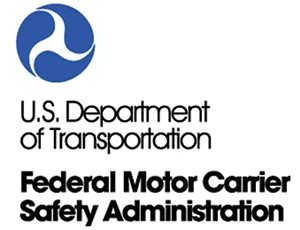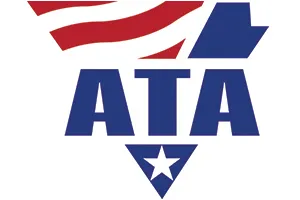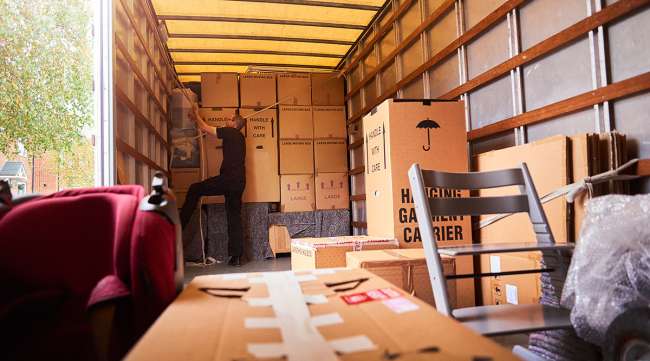(Martin Prescott/Getty Images)
Bipartisan legislation seeking to enhance consumer protections in the moving industry was recently approved by a Senate committee.
The Household Goods Shipping Consumer Protection Act, sponsored by Sen. Deb Fischer (R-Neb.), aims to boost certain Federal Motor Carrier Safety Administration guidelines to reassure consumers about securities and protections in the business of the movement of goods nationwide.
“This bipartisan, bicameral legislation will give the FMCSA the tools needed to protect consumers from fraud by scammers in the interstate transportation of household goods,” said Fischer, a senior member of the Senate Commerce Committee. The panel advanced the bill May 21.
Fischer noted that the legislation would require companies in the household goods sector to establish a principal place of business to “prohibit fraudulent companies from skirting existing regulations.”

Fischer and Duckworth
“Bad actors are constantly developing new ways to defraud hardworking Americans, so it’s critical we keep our laws up to speed in order to protect our constituents from the latest scamming techniques,” said Sen. Tammy Duckworth (D-Ill.), a co-lead sponsor. “I’m proud my bipartisan bill with Sen. Fischer has passed through committee in the Senate and is now that much closer to helping ensure FMCSA has the tools it needs to shield American consumers from theft. Moving is stressful enough as is — you shouldn’t also have to worry about whether your movers are trying to steal your money and belongings.”
Consideration of the measure in the full Senate has yet to be scheduled. The bill’s House version also awaits final consideration. “Senate committee passage of this bill is a significant step in the right direction for consumer rights,” said Del. Eleanor Holmes Norton (D-D.C.) on May 27. She is the measure’s co-lead sponsor in the House.

Norton
“Combating illegitimate shipping companies is like a game of whack-a-mole,” Norton continued. “As soon as one business is shut down, another pops up. This bill would protect consumers by clarifying FMCSA’s authority to assess civil penalties for violations of commercial regulations, and crucially, withholding registration from applicants who fail to provide verification details demonstrating they intend to operate legitimate businesses.”
Rep. Mike Ezell (R-Miss.), a co-lead sponsor in the House, said during the bill’s introduction earlier this year: “By holding dishonest actors accountable, we’re not only safeguarding consumers but also supporting reputable businesses and their workforce. I’m proud to co-author this important legislation to combat fraud and strengthen order within our economy.”

RELATED: House Committee Approves Moving Protection Bill
Under the bill, FMCSA officials would have authority to levy civil penalties against unregistered shippers. The agency would be authorized to set requirements to ensure motor carriers, brokers and freight forwarders operate legitimately in the marketplace. In targeting entities that threaten to hold customers’ goods hostage until exorbitant bills are paid, the measure paves the way for state agencies to access federal funds for increasing protections for household articles and personal possessions.

Industry stakeholders applauded the panel’s action last month. American Trucking Associations’ Moving and Storage Conference observed, “Thank you Sen. Deb Fischer and the Senate Commerce Committee for advancing this important legislation. Consumer protection is vital and the Household Goods Shipping Consumer Protection Act strengthens the tools needed by FMCSA to root out, deter and punish rogue operators.”
“This bipartisan legislation gives FMCSA much-needed tools to protect consumers from fraud in the interstate shipment of goods,” said Transportation Intermediaries Association President and CEO Chris Burroughs. “With freight fraud costing the industry an estimated $35 billion annually, this bill equips the agency to protect consumers, businesses and the supply chain. We thank Sens. Fischer and Duckworth for their leadership in addressing this growing crisis and helping restore integrity to the freight network.”






